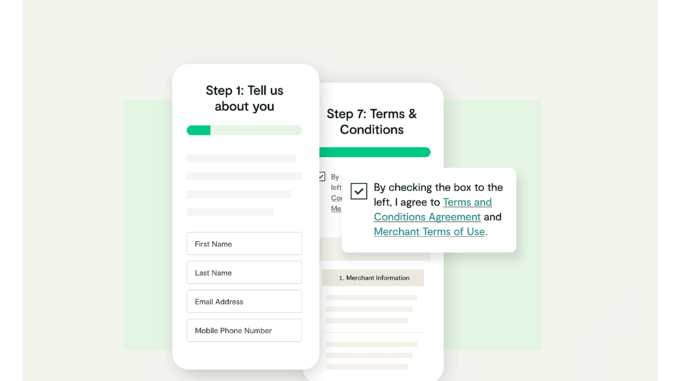
CLM company Ironclad believes that its new Clickwrap system will not only improve B2C online contracting, but also could be used for B2B contracts, and perhaps even challenge the reliance on e-signatures.
Clickwrap is where you click on one of those little boxes online that says ‘Do you accept our terms and conditions?’ And of course you do, and without reading a word of the agreement. But, that leaves the company involved with some legal risks. Ironclad thinks they have the answer.
In March this year, Ironclad bought Pactsafe, a company focused on improving legal certainty around these very brief online legal exchanges. Now, they’ve integrated it into their offering as ‘Clickwrap’, with the idea that companies that sell products or services online can create a far more legally certain approach to these overlooked, but sometimes risky agreements.
The idea goes like this: the main challenge today with clickwrap tick box agreements is that data about the product being bought, the key terms of that agreement at the time, and the details of the person agreeing to it, can get lost in the mix. Company websites are reworked. Old data gets misplaced. Who agreed to what and when – and even what for, gets lost.
But, then along comes a court case and the judge involved says: ‘OK, bring me all the online agreements in relation to X product. Who agreed to these terms? When? Did they know what specific product they were buying?’ And the company replies: ‘Er……sorry, we have a data retention problem here that may affect the case.’
The idea is that Clickwrap (i.e. the repackaged and integrated Pactsafe) allows a corporate to do several things that also connect to Ironclad’s CLM system:
- Naturally, all these contracts are kept in one searchable place, even if they were just a tick box experience for the customers.
- Key data about the customer is connected to those contracts: the who, when, and what they agreed to.
- A snapshot of the product they have bought is also taken, and associated with the contract, so there is even more clarity around what has been agreed to.
All of this ensures that the contracts are legally enforceable, and if they ever need to be provided in court the company has all the key data.
But, it doesn’t end there. This is clearly in the B2C segment of the market, i.e. a retail experience. What about B2B? Here, Ironclad believes that their Clickwrap approach can also work for commercial contracting.
The company said: ‘As ubiquitous as clickwrap contracts have become in consumer experiences, they are rare in B2B agreements, where e-signature is the common standard. In the future, businesses will strategically choose the best mode of acceptance to optimise for contract speed and counter-party experience.’
So, Ironclad will allow ‘for clickwrap and e-signature to be used interchangeably across all types of B2B agreements‘, which they claim is a first among CLM providers. Additionally, new Public Workflow features ‘provide public-facing links and dynamic launch forms, enabling completely self-service workflow for B2B counter-parties’.
While some contracts are very complex and cover one-off situations, and certainly need lots of expert advice from top lawyers, many day-to-day contracts between companies are not that different from those in the B2C world. If parties really are in effect just clicking ‘yes’ to renew an agreement, for example, then why not take the clickwrap approach?
Brian Powers, GM of Clickwrap at Ironclad, said: ‘Clickwrap will have a profound impact on how businesses handle all types of contracts, not just terms of service. By combining these proven technologies with Ironclad CLM, our customers will unlock consumer-type contracting speeds for contracts in sales, procurement, and legal.’
Sheena Loren Ferrari, Head of Global Legal Operations at Snap, which is a client of Ironclad, commented: ‘As a legal operations professional, I’m always looking for ways to improve our processes. So when our legal engineer approached me with the idea to try Clickwrap, I was excited to test it out. We decided to start with our creative service agreements, which are high volume, transactional agreements that had been experiencing some friction.
‘Since converting these to Clickwrap, our time to acceptance is down, our sales reps are happier and our legal team has saved dozens of hours each month.’
Is this a big deal?
This has several aspects. First, it’s a case of taking an experience from the consumer world and applying it to the B2B world. Then there is the aspect of creating – at least as far as Ironclad sees things – a sort of competing approach to e-signature.
And finally there is the legal ops and efficiency angle. Clearly there needs to be plenty of up-front legal work here to make sure what is going through the streamlined system is low risk, but after that – and as long as it’s monitored and updated – the clickwrap approach could help to reduce the time needed to approve and execute contracts for corporates.
This could also reduce the pressure on inhouse legal teams, and especially their dedicated contracting groups. So, potentially it is a big deal if this sees widespread adoption for B2B contracts.